When millennial-on-millennial crime jeopardizes the safety and happiness of selfie takers, social media over-sharers and outrageously entitled twentysomethings, there’s only one duo that’s ready to crush Generation Y’s worst bad guys…once they finish updating their statuses on Facebook.
That duo is MYRTLE AND WILLOUGHBY, and in the eponymously named web series’ first seven part season (streaming on its official web site and Vimeo pages; links to both below), these misunderstood but dedicated detectives (played, respectively, by show co-creators Brittany Tomkin and Jorja Hudson) stop at nothing to find the killer – or killers – of Dustin Flipp (Ryland Duncan), a young man who died before he could send his last text.
Myrtle and Willoughby’s investigation leads them to a gang of millennial drug dealers called The Sponge Boys, who rule Brooklyn’s mean streets with, well, sponges. The gang is headed by its boss, Gloucester Dickbird (Micah Phillips), and his two loyal henchmen: Roger (Manolo Moreno), and Box (Drew Freed). As criminals like them are want to do, The Sponge Boys skillfully effort to stay one step ahead of justice, but will their egos get them in cuffs as much as their illicit enterprise does?
Off the streets, the two cops who make up the city’s Millennial Crimes Unit fight for respect from their traditionalist superior, Captain Kipperary (Will Hines), and from Detective Shmih (Richard Armstead), who are confounded as much by the Unit’s personal traits as they are by their crime-solving methods.
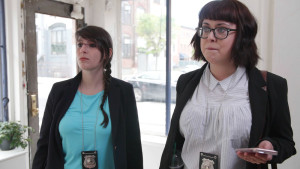
L-R: Brittany Tomkin and Jorja Hudson play MYRTLE AND WILLOUGHBY, the eponymous pair that comprise Brooklyn’s “Millennial Crimes Unit” in the seven episode comedy series.
Luckily, Myrtle and Willoughby are supported by fellow millennial/witless precinct intern Phil Collins (Jake Hyland), and to a smaller extent by the precinct’s older administrative manager Sybil (Sharon Spell).
While at headquarters, Myrtle and Willoughby are both captivated by the handsome homicide detective Sam Goodguy (Dom Manzolillo), a millennial who’s already won Kipperary’s trust – and a prime position in the department – while Myrtle and Willoughby still need to prove their bona fides to their boss.
Though Myrtle and Willoughby are definitely dynamite together, their differences often prove to be the biggest keys to their work. Myrtle’s hard-nosed, tough, and like her partner, is completely dedicated to succeeding in the law enforcement field. Willoughby, by contrast, has a gentle and warm nature that’s balanced by a cunning talent for pinpointing the psychological will of crooked folks like The Sponge Boys.
Many web series producers pay tribute to their creative influences in the shows they develop, but these shows also reflect the upbringing and lifestyles of their creators. Hudson and Tomkin’s professional teaming has been as successful as their friendship, and while both sides of their bond shone through in the development of MYRTLE AND WILLOUGHBY, a common Brooklyn subway name put Hudson and Tomkin on the track to conceiving the latest undertaking in their partnership.
“There’s a stop along the G Train in Brooklyn named ‘Myrtle-Willoughby Avenues’ and when I rode past it once, I thought those seemed like excellent names for buddy cops,” Hudson recalls. “Brittany and I did a lot of improv and sketch comedy together, so when I pitched her the idea we started brainstorming how these characters would look and sound, and the rest of their world developed organically from there.”
MYRTLE AND WILLOUGHBY is a comedy about two millennial cops, but the lives and traits of Generation Y are also satirized by Hudson and Tomkin’s. Like their real life friendship, the fact that they’ve lived (and still live) as part of America’s millennial demographic makes that satire hugely relatable.

Will Hines plays Myrtle and Willoughby’s old-fashioned boss, Captain Kipperary, who’s skeptical not just of his two millennial detectives but of Generation Y in general.
“I’d say our experience as millennials living in Brooklyn inspired everything about the show, and then we took those elements and heightened them,” explains Hudson. “For example: the giant loft that’s an illegal Airbnb. The yoga teacher that specializes in ‘Chaos’. Willoughby having 16 roommates. The L Train never running. We used those recognizable things to playfully satirize what it is to be a millennial in Brooklyn today.”
“I know people who work 4 jobs and survive in a tiny apartment eating peanut butter and jelly sandwiches, and others who have lost their phone in a cab and then immediately just bought a new one the next day,” Tomkin replies. “So much of the millennial identity comes from the amount of support, or lack thereof, that we have from others, and in a way, the ‘Millennial Crimes Unit’ exists to be that sort of unique support system for all millennials.”
The world that Myrtle and Willoughby reside in is, of course, the gritty and violent business of crime fighting (a.k.a. the Millennial Crimes Unit). Though the profession is a key part of the characters in Hudson and Tomkin’s series, the friendship between its titular pairing gives MYRTLE AND WILLOUGHBY an authentic appeal that goes beyond the police procedural and millennial tropes parodied by the show’s storyline.
Giving the characters’ companionship an even larger core of realism in the series is that it’s also as strong as the one shared by Hudson and Tomkin. “I would almost say that the focus on female friendship wasn’t even our goal, but it came out so naturally because of our own friendship and writing style,” says Tomkin. “I don’t think it would have been possible for us to write a show where the relationship between the two main characters wasn’t the focus because that is precisely what gives the story meaning.”
“…There are a lot of great comedies about millennial friendships and police, but not one that combined both of those elements,” Hudson notes. “Originally, I envisioned Myrtle and Willoughby as being quite goofy and aloof, but as we continued developing (the show), we expanded (the characters’) motivations to show that the reason that their Captain looks down on them – being silly millennials – is also their biggest strength. Their millennial know-how is how they’re able to solve crimes.”

L-R: Dom Manzolillo plays the handsome millennial detective Sam Goodguy, while Richard Armstead plays his older, millennial-doubting colleague, Detective Shmih.
Cops can’t haul the bad guys off to the slammer if no bad guys are on the loose, so Hudson and Tomkin created some vicious opponents for Myrtle and Willoughby to hunt in the series.
By introducing the villainous “Sponge Boys” in season 1 of the comedy miniseries, Hudson and Tomkin honored the “whodunit” element that fans of detective/police dramas constantly tune in for.
“We knew our protagonists needed to have an enemy, and to us, The Sponge Boys represent ‘Millennial Baddies’,” Hudson says. “We knew the police procedural genre meant there should be a mystery for them to solve, and had the image of someone dying right by their phone charger quite early on. Setting those key characters and plot against the colorful backdrop of a heightened Bushwick meant after that, we only had to come up with jokes and other eccentric characters.”
While Tomkin pitches MYRTLE AND WILLOUGHBY as a comedy that she describes as “BROAD CITY meets BROOKLYN NINE-NINE,” the series presents something mainstream TV viewers rarely see in ensemble sitcoms or dramas: two female professionals working side-by-side as allies.
“Most of the ‘buddy cop’ comedies we see in TV and film are men, and when we do see female detective pairings, they’re either in dramas, or just small parts of a larger ensemble,” explains Tomkin. “And then, there are so many situations where we see female characters pitted against each other as if there’s a competition for who gets to be the token female in the boys’ club. It’s ridiculous.”
The show also stays away from stereotypical tropes that are still common in female-centered content. “In a mini-series, every minute is crucial and avoiding the generic subplot of a love interest gave us more room for our leads to love their friendship,” Hudson adds. “The second was to avoid the ‘can women really have it all?’ question, which we always see in shows where women have high maintenance jobs. Myrtle and Willoughby don’t have to live in that already overly explored topic. They can just live.”
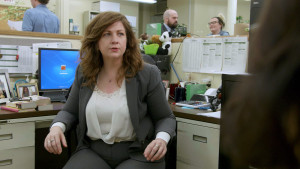
Sharon Spell plays Sybil, a precinct administrator who Myrtle and Willoughby rely on as a mentor – though Sybil doesn’t exactly see it that way.
Reflected in some of MYRTLE AND WILLOUGHBY’s supporting characters are the problems that women like Hudson and Tomkin’s detectives face not just in professions like law enforcement, but in other professions where sexism and ageism threaten opportunities for career growth.
“We created the character of Detective Sam Goodguy, a fellow cop at the Precinct, to contrast their positions: he’s the same age as them, but lands promotions and raises with minimal effort, ” Hudson remarks. “In any industry, it’s easy to have your intelligence and experience quickly judged based on your age or gender, and so it was important to us that Myrtle and Willoughby earn the respect of their Captain and the rest of the squad with their hard work.”
“Another moment that was fun to write was the introduction of the Federal Millennial Crimes Task Force in episode 6,” adds Tomkin. “They’re millennials who have been in the industry longer, have better jobs, and still face the same challenges as Myrtle and Willoughby do, just on a different scale. The struggle for acceptance is ongoing for all women, even characters who have a higher status than Myrtle and Willoughby.”
Though budgetary limitations were at play during the 15 day production of MYRTLE AND WILLOUGHBY (the series was filmed in 2017 in Brooklyn), Hudson and Tomkin firmly committed to pulling off the highly physical, joke-laden comedy they created for the series. “We were adamant about not taking any shortcuts or sacrificing any of the jokes in our script to make production easier, and in the places where we did have to make some sacrifices, we wanted to make sure we could come up with a solution that was just as funny,” Tomkin remembers.
On the show’s biggest action sequence, though, Hudson and Tomkin had to change the script. “There’s one scene at the end of the series (that) was supposed to feature a swarm of cop cars, but we weren’t able to obtain any, for obvious reasons,” comments Tomkin. “So instead, we had the characters show up on Citi Bikes, which wound up being so much funnier and more in line with what these characters would do. But, I think that was the only scene in the show that wasn’t filmed as we wrote it. Everything we put on the page made it into the final product, which felt like a major feat.”

Jake Hyland plays the well-meaning but dimwitted precinct intern Phil Collins in MYRTLE AND WILLOUGHBY.
Whether you’re geographically planted in a big metropolis or a little suburb, MYRTLE AND WILLOUGHBY is based around two elements that reach everyone no matter where they reside in: humor and humanity.
“I think part of the fun of the show is that thematically, it can appeal to anyone,” says Tomkin. “Yes, there are lots of jokes specific to millennials and New Yorkers, but the heart of the story is about friendship and overcoming adversity. I think just about anybody can relate to that.”
Hudson replies: “If viewers can relate to something in the show (like the L Train joke), then great. If they don’t understand the reference, then enjoy the weirdness, I guess!”
Also universal are the goals that Hudson and Tomkin share for their show’s success. “Ultimately, we just want to make people laugh: that’s our greatest passion in life as comedy writers and filmmakers,” says Hudson. MYRTLE & WILLOUGHBY is a goofy and vibrant adventure show with two likable leads going against the world to prove themselves. We’d also love to inspire other young women to be both in front of, and behind the camera producing their own work.”
(NOTE: Regarding closed-captioning/subtitling of MYRTLE AND WILLOUGHBY, Tomkin says: “The show currently isn’t subtitled at the moment but as soon as we have the chance, we aim to make that available.”)
ON THE WEB: http://www.myrtleandwilloughby.com
VIMEO: www.vimeo.com/myrtleandwilloughby
FACEBOOK: www.facebook.com/myrtleandwilloughby
INSTAGRAM: @MyrtleAndWilloughby

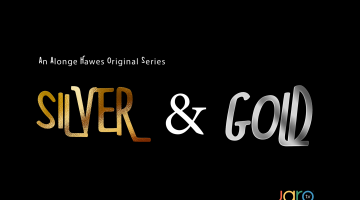


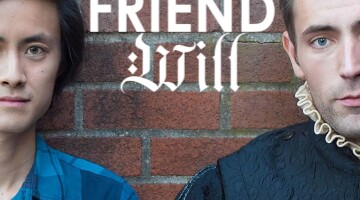
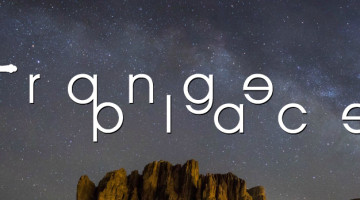
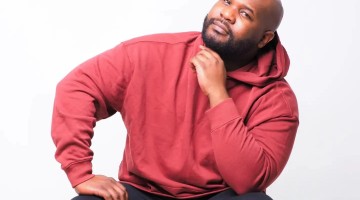
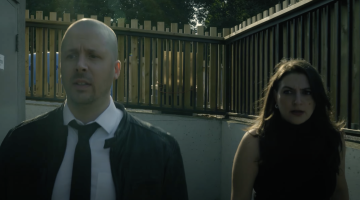
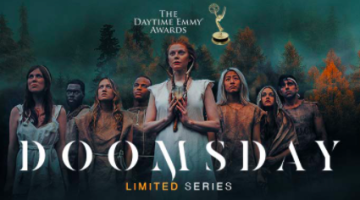
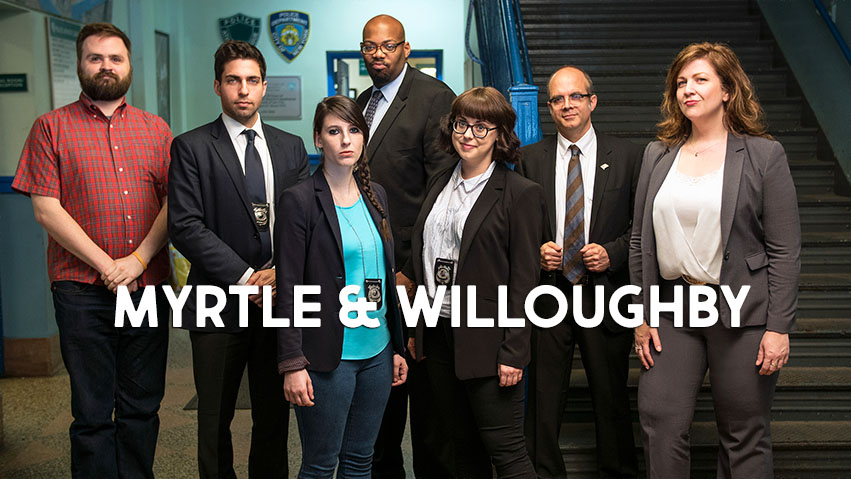
No Comment